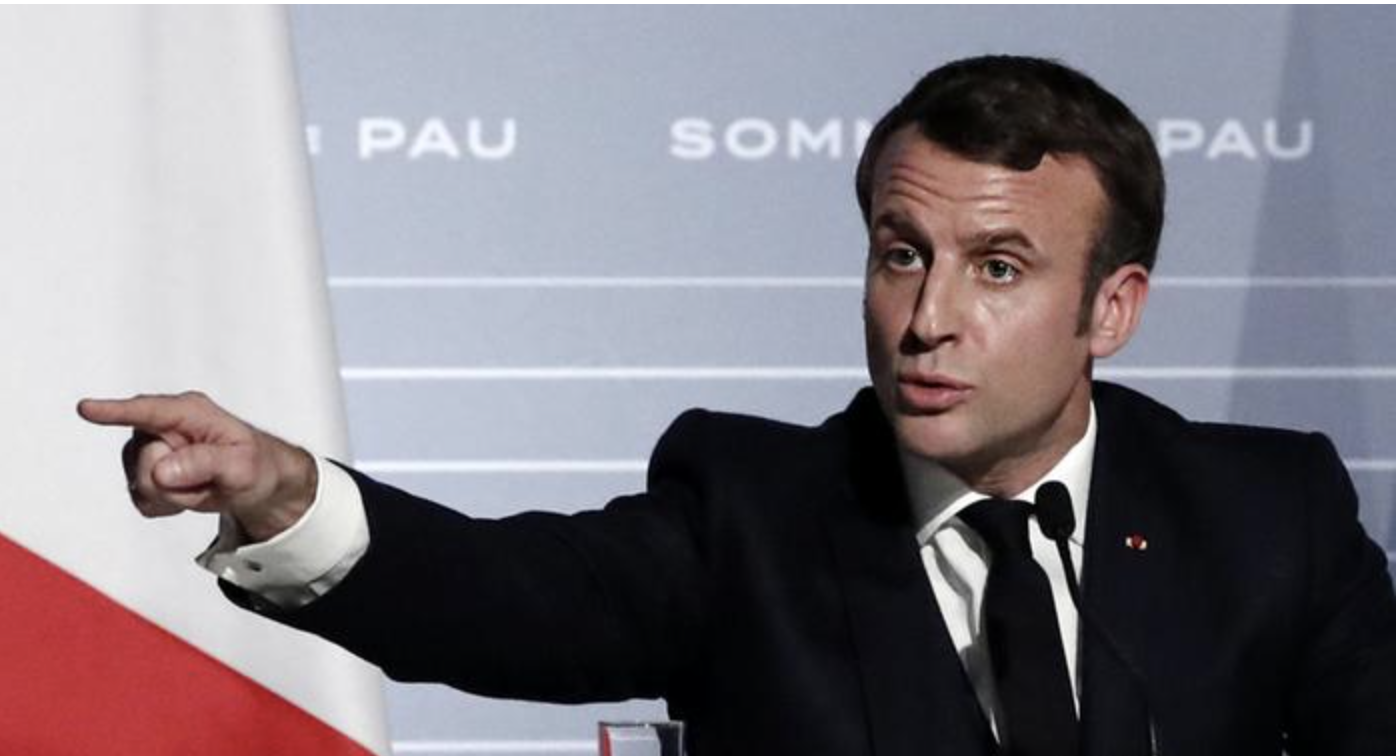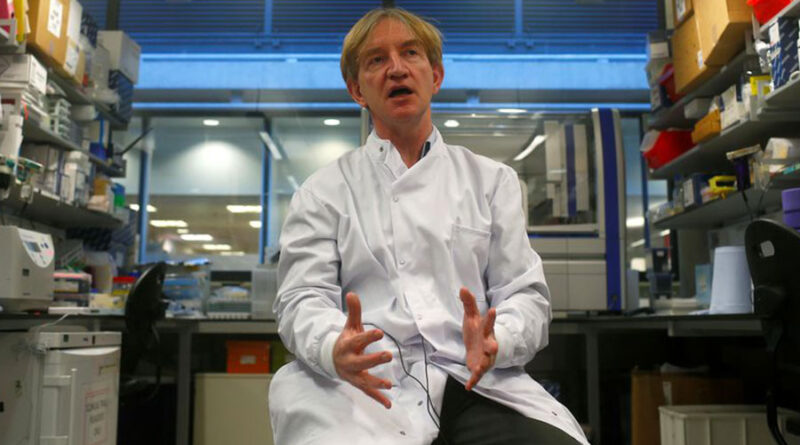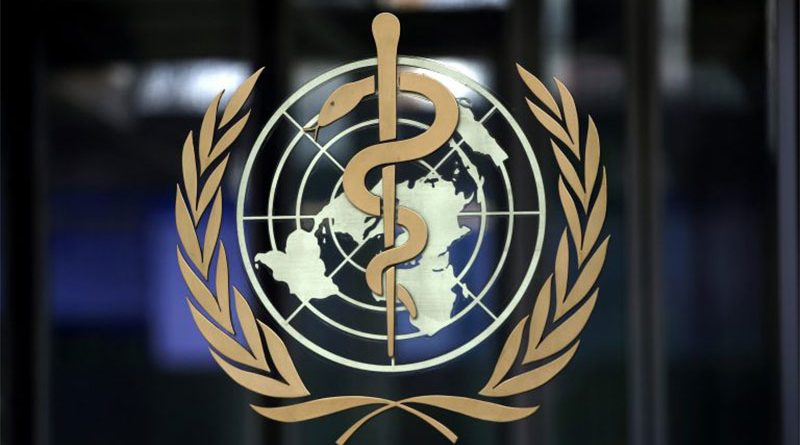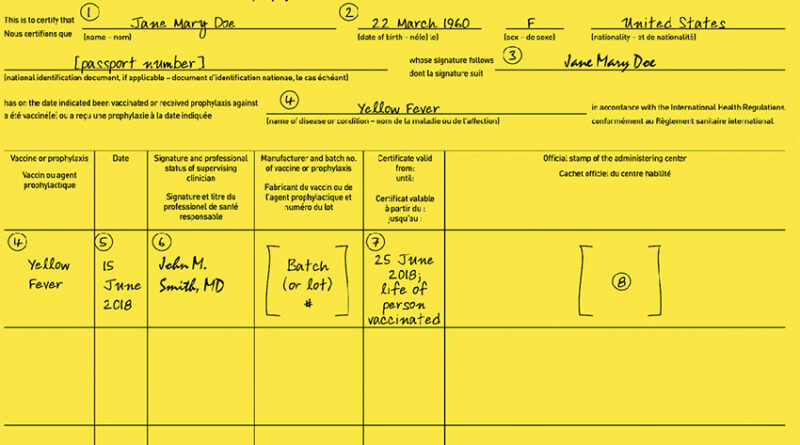France is due to hold a summit for selected African heads of state to spur economic growth in light of the COVID-19 pandemic. Experts differ on the guest list and conference expectations citing reality on the ground.
On May 18, 2020, French President Emmanuel Macron will play host to several African leaders. Amongst them is the chairperson of the African Union Commission and the head of the African Development Bank. Also expected to be in attendance will be some European leaders, G7, G20, International Monetary Fund (IMF), and other financial institutions.
COVID-19 is the topic of the moment, but when it comes to French-Africa relations, the waters are easily muddled by other issues such as colonial legacies, FrancAfrique, aid, and the use of the Franc CFA currency. There is already contention regarding the criteria used for inviting attendees to the summit. Roland Marchal, a leading expert on French African relations at the University Science Po in Paris, says the criteria by which Macron selected the participants was not made public.
"President Macron has sent invitations to the most significant African economies and certainly those who are part of la Francophonie," Marchal told DW. "It will be wrong to assume that the aim of France is only to gather its clients, members of La Francophonie — its traditional clients on the continent."
Reaching out beyond la Francophonie
According to Marchal, Macron, like his predecessors, Francois Holland and Nicholas Sarkozy, has been trying to extend friendship ties to countries that France did not colonize — such as Ethiopia, Kenya, Nigeria and, South Africa. Observers view them as the most emerging countries on the continent.
"There is the question of the former colonies behind it," French lawmaker Sebastien Nadot said. "Countries with ongoing disputes with France will not be present — otherwise, it would be perceived as a provocation for the diaspora in France. For example, Sassou Nguesso of Congo Brazzaville, will not be there," Nadot told DW.
Need for optimism?
The summit's primary goal is to 'give a big boost' to countries hit by COVID-19. To this end, some Africans think it is an excellent prospect for the continent.
"Of course, it is an opportunity for Africa because right now, the whole world, especially Africa, is on edge, Albert Rudatsimburwa, a Great lakes analyst from Rwanda, said. "Coming to a meeting where multilateral organizations which are financing the COVID vaccines will be present is an opportunity to have a discussion," Rudatsimburwa told DW.
For Cameroonian analyst Bergeline Ndoumou, there are more pressing issues affecting the continent, which the current summit does not address. "It is just another useless gathering, a waste of time and resources which is more beneficial to France than Africa," Ndoumou told DW.
"They have been holding countless summits, but how have those summits benefited Africa? Do we have potable water? Good schools or medical facilities? How have they [summits] impacted governance in our various African countries? We still have bad leaders," Ndoumou said, adding that such gatherings are a way for France to remind these so-called leaders that they are still a colony.
"It is just a ploy for Macron to solidify his grip on the African continent."
'It is about economics and politics, not COVID'
There is no clear indication as to whether the summit will be discussing some of the broad political, social, and governance issues raised by Ndoumou.
"On the question of COVID-19, I am not sure there will be any significant discussions on that in Paris. I understand the World Health Organisation (WHO) will not be present. The International Monetary Fund (IMF) will be there but not WHO. It is obvious COVID is not the priority," French parliamentarian Nadot said.
Many commentators have highlighted that the new scramble for Africa is well underway. According to Nadot, this summit is about the flexing of muscles by the world powers.
'Glimmer of hope'
"Presently, France doesn't have sufficient financial power to assist African states," Marchal said, pointing out the need for France to rely on other Western powers. "Also, we will use this opportunity to look into African states that owe huge debts to China. Countries such as Zambia and Djibouti are in trouble. Kenya will be in trouble soon. So, we are trying to adjust African countries' trade deficit with China," Marchal added.
On the contrary, Nadot accuses France of being pretentious by seeking to solve Africa's problems while failing to tackle its own.
He adds that there could be a glimmer of hope for Africans, especially regarding debt cancellation and the question of the Franc CFA currency. "But African leaders have to unanimously organize their countries to find an alternative currency they can use. If they are waiting for a solution from France or Europe, it will be a solution from outside and not clearly for only the interest of the countries of Africa."
ONE of the Oxford scientists who co-developed AstraZeneca’s COVID-19 vaccine defended its safety on Friday and said he was not worried that some countries had opted to restrict its use amid concerns about a possible link to very rare side effects.
Adrian Hill, director of the Oxford University’s Jenner Institute, said teams around the world were working to pin down any potential mechanism for what might be causing the blood clots, using real world data now so many shots have been administered.
He agreed with medicines regulators in Britain, and Europe, and with World Health Organization experts, that the risk-benefit balance for the coronavirus shot favoured its use.
“If some countries choose to use one (COVID) vaccine, there will be more of the other vaccines for other countries,” Hill told Reuters. “We don’t see this as a huge issue.”
More than a dozen European countries had suspended use of AstraZeneca’s COVID-19 vaccine, called Vaxzevria, amid reports of cases of the clots combined with low platelets in a very small number of people who had received it. Many countries have resumed using the shot, but with some restrictions.
After reviewing the safety reports, the European Medicines Agency (EMA) regulator said that while there was a possible link, a direct causal link had not been established and the vaccine’s benefits in preventing severe COVID-19 disease were substantial.
Asked whether he was surprised by the reports of blood clot cases occurring in Britain, Norway, Germany and other countries that have been rolling out Vaxzevria, Hill said such extremely rare side effects would not have emerged even in large-scale trials involving tens of thousands of participants.
“Nobody can detect something that occurs in one in 300,000 – and maybe causes death in about 1 in a million – if you’re doing studies of the order of 10,000 to 20,000 vaccines,” he said.
“These very, very rare side effects are very hard to pick up with any vaccine. What’s good is that we can now pick these up – because the data linkage infrastructure in the UK and many other countries is able to do this remarkably quickly.”
AstraZeneca’s vaccine uses a non-replicating cold virus known as adenovirus to deliver spike proteins into cells and produce an immune response.
Hill said the potential mechanism behind any possible link between the vaccine and the rare blood clot cases was “a matter of intense research by many groups around the world”, including teams at the Jenner Institute and at AstraZeneca.
“It may or may not take a long time to figure out,” he said. “I think we’ll be able to do it reasonably quickly and hopefully come up with an immunisation regimen or approach that effectively completely avoids this issue. But we need to … learn more before that.”
Source - Thomson Reuters Foundation
TECHNICAL experts at the World Health Organization (WHO) will review on April 26 Chinese drugmaker Sinopharm’s COVID-19 vaccine for possible emergency use listing, to be followed by the Sinovac jab on May 3, the agency said on Thursday.
“We would expect a decision a couple of days later,” the WHO said in response to a Reuters query.
So far COVID-19 vaccines made by Pfizer, AstraZeneca and Johnson & Johnson have received a WHO listing – an endorsement of their safety and efficacy that helps to guide countries’ regulatory agencies.
Source - Thomson Reuters Foundation
THE World Health Organization’s Emergency Committee has recommended that proof of vaccination not be required as a condition of international travel, maintaining its stance on the issue under growing debate.
The independent experts, in a statement issued yesterday, cited limited evidence on whether vaccination against COVID-19 reduces people’s ability to transmit the virus and “the persistent inequity in global vaccine distribution”.
States should recognise that requiring proof of vaccination deepens inequities and promotes unequal freedom of movement, the panel said.







